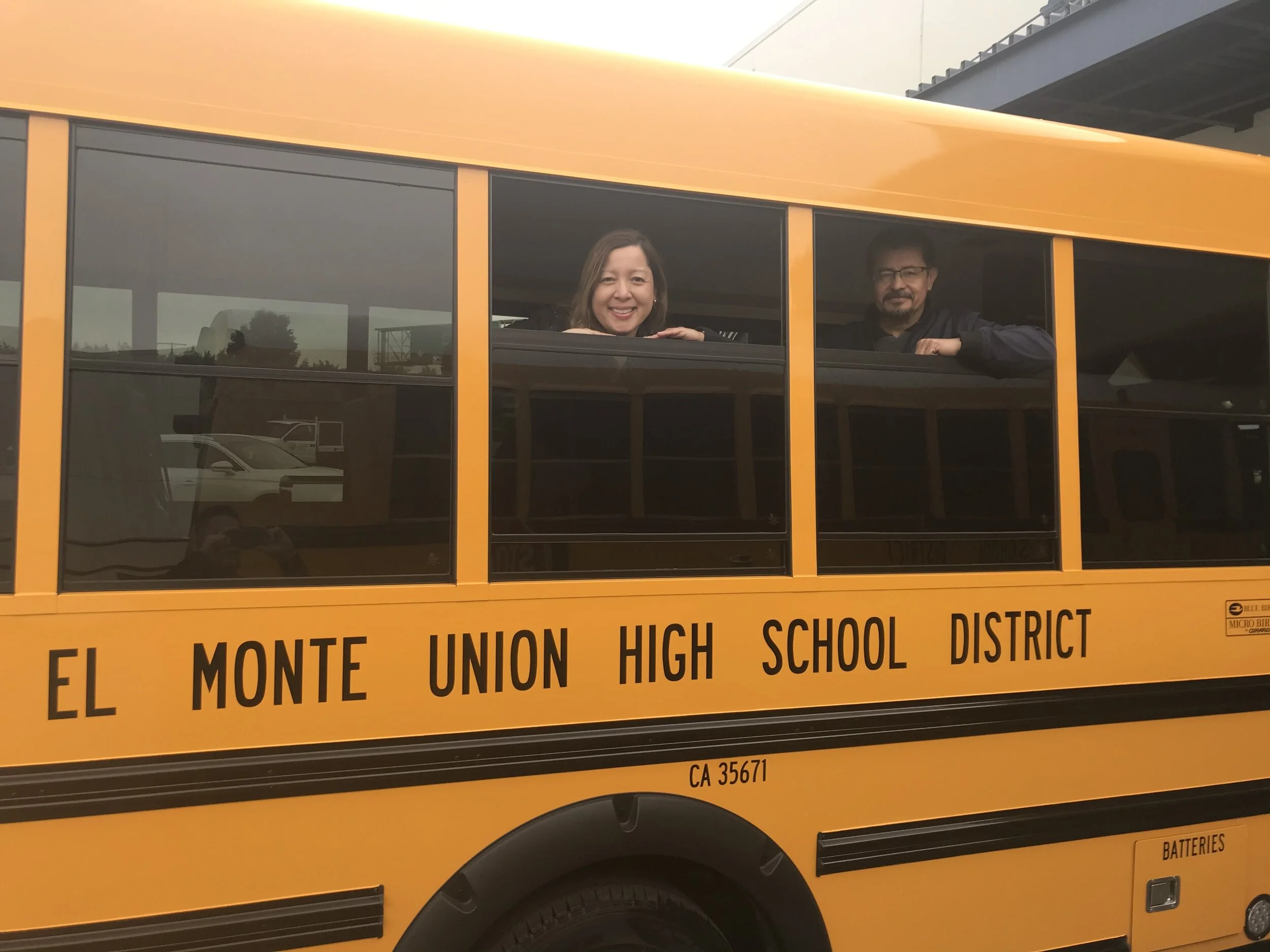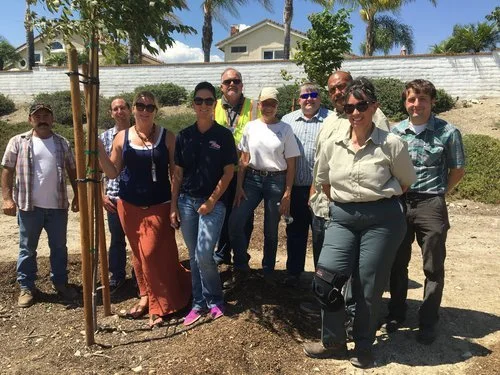In light of critical dangers to the city of Santa Cruz’s roughly 4.6 miles of coastline posed by climate change, the city is using a $200,000 grant from California Climate Investments through the Coastal Resilience LCP Planning Grant Program to develop strategies and policies intended to protect public beach access, prevent community displacement, and build resiliency against future coastal hazards.
Clean Mobility Options Connect Rural Communities with Reliable Transportation
BlueLA Car Share Pilot Expands Clean Mobility Options for Low-income Angelenos
Our Community CarShare Program Supports Low-Income Sacramentans
Adapting to Sea Level Rise in Carlsbad
A major transportation corridor in the city of Carlsbad, South Carlsbad Boulevard is highly vulnerable to flooding and erosion as a result of climate change. But thanks to a $498,075 grant from California Climate Investments through the Climate Ready Grant Program, the city was awarded in 2019, Carlsbad is creating a plan to protect a portion of the boulevard that is particularly vulnerable to sea‑level rise, frequent coastal flooding, and cliff erosion.
Pauma Band of Luiseño Indians Scales Up Carbon Farming
Community Knowledge and Collaborative Research Facilitate Equitable Energy Transitions
In Los Angeles County, transitioning to clean, renewable energy will improve air quality and reduce the overall carbon footprint in California’s most populous region. With a $638,878 award from California Climate Investments through the Climate Change Research Program, a partnership led by the University of California, Los Angeles and Liberty Hill Foundation is helping to make this transition equitable, affordable, and beneficial for people living in the area’s priority populations. That means engaging these communities at all stages of the research.
Toxic Tides Project Researches Nexus of Sea-Level Rise, Hazardous Sites, and Vulnerable Communities
Nation's First All-Electric Bus Route Rolls Out in South Stockton
Foothill Transit Embraces Electrification
Reducing Exposure to Air Pollution with Electric School Buses in El Monte
Thanks to $9.8 million from California Climate Investments, El Monte Union High School District will be able to implement their Clean Mobility in Schools project, one of three projects awarded to school districts across California in 2020. These funds will help El Monte Union High School District purchase battery electric school buses and charging infrastructure, energy storage infrastructure, develop an active transportation plan, and much more, across six high schools and one bus garage.
Growing Trees and Community Capacity in San Bernardino County
Training the Next Generation of Energy Efficiency Professionals in Sacramento
Reducing Fire Risk Through Hands-On Training Opportunities
The California Conservation Corps, a state department within the California Natural Resources Agency, uses funds from California Climate Investments to complete projects aimed at reducing greenhouse gas emissions across California. These funds target forest health projects, especially fuel load reduction where dead and dying trees, brush, and vegetation are removed to reduce wildfire intensity and rate of spread. The McKay Community Forest Fuel Reduction project provided skilled labor to Humboldt County to minimize fire danger near communities on the southeastern edge of the City of Eureka.
California Conservation Corps Completes Critical Fuel Break Project in Auberry
Nestled along Little Sandy Creek along the northern edge of Fresno County sits the Town of Auberry. To prevent catastrophe from hitting the communities on the western edge of the Sierra National Forest, the California Department of Forestry and Fire Protection partnered with the California Conservation Corps to reduce the flammable woody material in the area.
Electrifying Caltrain
Caltrain, the seventh-largest commuter rail agency in the nation, is undergoing a major transformation by electrifying the railroad to provide cleaner, quieter, and more efficient service. In 2018, Caltrain received a grant from California Climate Investments through the Transit and Intercity Capital Rail Program, allowing the agency to expand the new electric train fleet from 16 six‑car trainsets to 19 seven‑car trainsets. This greatly expands both the capacity and the potential frequency of the soon‑to‑be‑electrified rail service.
Expanding Rail Car Capacity and Community Connections in Marin and Sonoma Counties
Sonoma and Marin Counties received an $11 million grant to help pay for four newly manufactured rail passenger vehicles to complete the SMART Rail Car Capacity Project. Together with a newly launched 43-mile SMART passenger rail service across Marin and Sonoma Counties, these rail cars will connect communities, provide a transit link between job markets and worker populations and provide people with a sustainable transportation option.
Electrifying Antelope Valley Transit
Antelope Valley Transit Authority is on their way to electrifying their entire fleet, thanks to funding from California State Transportation Agency. They have purchased 29 zero-emission battery-electric buses, including the world’s first 60-foot zero-emission battery-electric articulated bus, and the nation’s first battery-electric commuter coaches.
Expanding and Upgrading San Francisco's Light Rail Vehicle Fleet
Tribal-Led Project Brings Affordable Housing and Sustainable Communities to Arcata
With the help of technical assistance providers funded by the California Strategic Growth Council’s California Climate Investments Technical Assistance program, Arcata 30th Street Commons became the first tribal led project funded by California Climate Investments through the Affordable Housing and Sustainable Communities program. The project, proposed by the Yurok Indian Housing Authority, earned a $11.4 million award and exemplifies how a strong vision, combined with partnership, technical assistance, and investment can help transform an under resourced community.






















